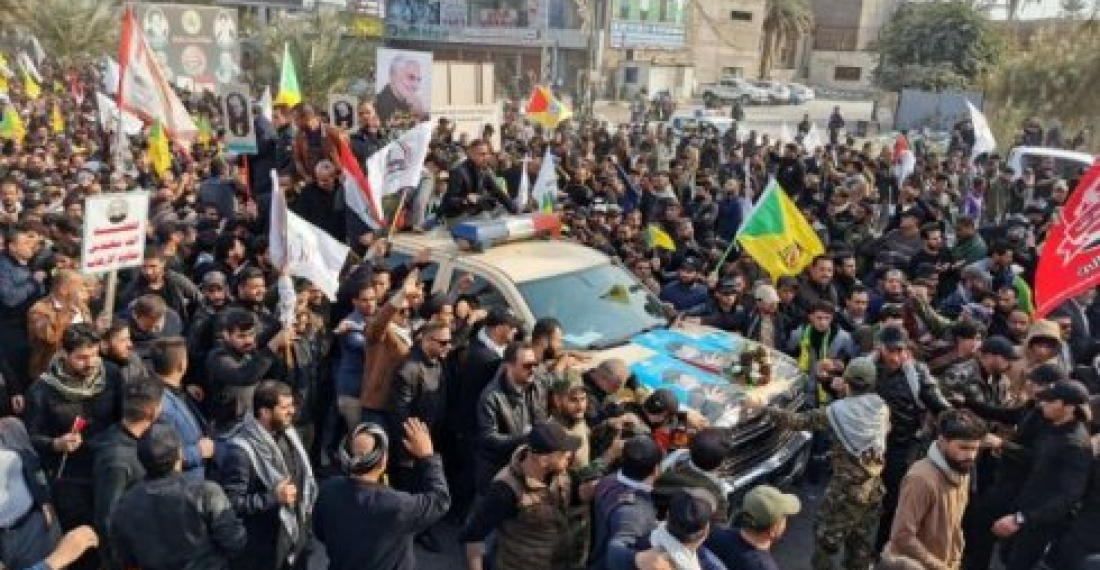Updated to include reaction of Azerbaijan
There have been expressions of alarm and calls for restraint by all concerned as world leaders reacted to the events unfolding in Iraq following the assassination by an American drone of a leading figure in the leadership of the Islamic Republic of Iran. Iranian leaders have been vowing to avenge the killing of Qasem Soleimani, the head of the elite Quds Force of the Islamic Revolutionry Guards Corps.
related content: Commentary: A very dangerous moment for peace in the wider middle east
The UN Secretary General, Antonio Gutterez, in a statement through his spokesperson, expressed deep concern with the recent escalation. "This is a moment in which the leaders must exercise maximum restraint. The world cannot afford another war in the Gulf", he added.
Russia has been amongst the most vocal critics of the latest American action, with statements made by the Foreign and Defence Ministries and in comments attributed to president Putin in a telephone conversation with president Macron of France on Friday (3 January).
In the South Caucasus the leaderships of Armenia, Azerbaijan and Georgia are being extremely cautious in commenting on the current events. The region expects to be very negatively affected in case of an escalation of violence.
The first public statement came from Armenia, which shares a border with Iran. A terse statement published on the Ministry of Foreign Affairs webs
"We are seriously concerned about the recent incidents in Baghdad which led to human losses as well. They risk further undermining the regional security and destabilizing the situation in the Middle East and beyond. Armenia calls for the de-escalation of situation exclusively through peaceful means.
Armenia will continue to closely cooperate with all its partners aimed at ensuring regional stability and security."
Foreign Minister Mnatskanyan also held consultations with senior officials and ambassadors accredited to the region.
Earlier, prime minister Pashinyan appearerd to rebuke some Armenian foreign policy experts who were speaking to the media in alarmist terms, essentially telling them to shut up.
In Azerbaijan which not only shares a border with Iran, but also has close religious, cultural and human links the media is covering the story closely.
On Saturday afternoon (4 January) the Azerbaijani Ministry of foreign Affairs told the media that Foreign Minister mammadyarov had spoken to his iranian counterpart, Javad Zarif. The source added,
"The ministers discussed growing tension in the light of recent events in the region. The Azerbaijani side calls on all parties involved to refrain from violence and be committed to strengthen regional security. Minister Mamedyarov expressed deep condolences to the leadership and people of the Islamic Republic of Iran in connection with the death of General Kassem Suleimani."
Georgia, which traditionally has had good relations with Iran despite its own good relations with the US, has also so far made no comment.
The funeral of Suleimani and his colleagues takes place today (Saturday). Quite what is going to happen after that is not clear, but neighbouring countries of Iran and Iraq are bracing themselves for the worst.
source: commonspace.eu
photo: Hundreds of thousands are protesting in the streets of baghdad during the funeral of General Suleimani and his colleagues killed on Friday in an American drone attack. (picture courtesy Irish Times)






